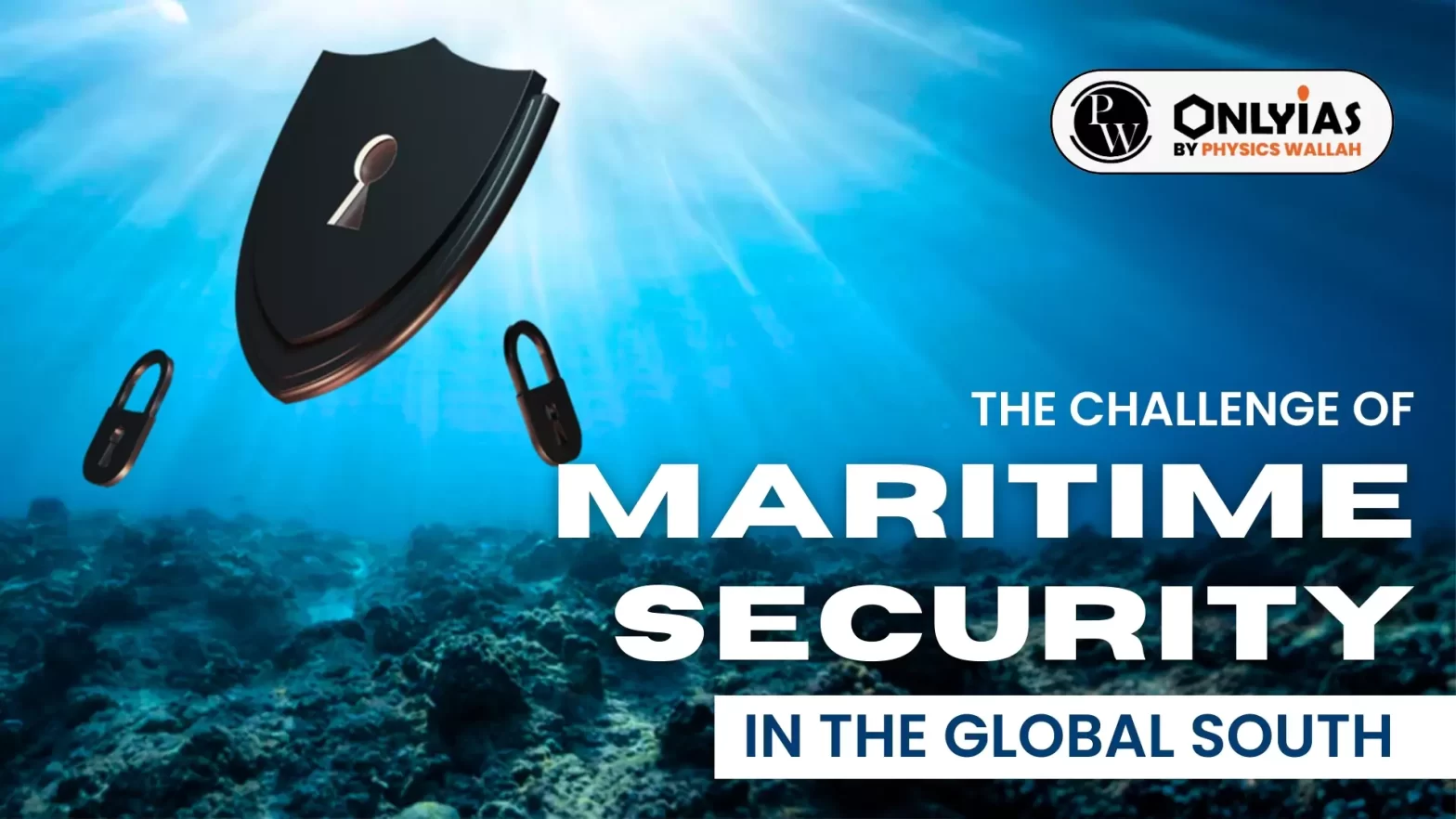Context:
This article is based on an Editorial “The challenge of maritime security in Global South” Which was published in the Hindu. Charles Darwin said that the key to human survival is not humankind’s innate superiority but its natural adaptability. The same holds true with the recent scenario of the maritime challenge as hard security challenges in the maritime domain have acquired a new, menacing dimension such as the use of grey-zone warfare, land attack missiles, and combat drones.
- Examples: Ukraine‘s growing use of asymmetrical tactics against Russia in the Black Sea, and China’s deployment of maritime militias in the South China Sea.
| Relevancy for Prelims: India’s Maritime Vision 2030 and India’s Indo-Pacific Oceans Initiative.
Relevancy for Mains: Challenge of Maritime Security in Global South. |
What is the demand for maritime security?
- Against Unconventional Security Threats: Such as illegal fishing, natural disasters, marine pollution, human and drug trafficking, and the impact of climate change.
- Rise in illegal, Unreported, and Unregulated Fishing: It is due to faulty policies such as bottom trawling and seine fishing.
- Environmentalists highlight three reasons i.e., lenient regulations that allow for the misuse of resources, lax implementation of the law by security agencies, and the harmful impact of subsidies by which smaller fishermen shift to motorized trawling.
Also Read: Indo-Pacific Region
What challenges are associated with maritime security?
- No functioning template to fight non-traditional threats at sea.
- Non-Realization of the Sustainable Development Goals in the littorals, as voices from littoral states in Asia, Africa, and the Southern Pacific are ignored by the developed countries.
- Perception of detriment by the Global South about the zero-sum competition in the Indo-Pacific.
- The cross-jurisdictional linkages between these diverse areas such as national, environmental, economic, and human security goals make them challenging to manage.
- Unequal law-enforcement capabilities and lack of security coordination among littoral states of Asia and Africa to jointly combat maritime threats.
- A paradox of non-traditional maritime security is that many littoral states are reluctant to pursue concrete solutions to the challenges at sea.
What initiatives have been taken for maritime security?
- India’s Initiatives:
- India’s Maritime Vision 2030: It is a creative 10-year blueprint for the maritime sector proposing the development of ports, shipping, and inland waterways.
- India’s Indo-Pacific Oceans Initiative: It is based on seven pillars including maritime ecology, marine resources, capacity building, disaster risk reduction, and maritime connectivity.
- It acknowledges that countries need collective solutions as they remain economically interdependent.
- G20 Presidency: India emphasized the concerns of the Global South to find solutions to the issues of maritime security throughout its presidency.
- Bangladesh’s Document on the Indo-Pacific: It has guiding principles and objectives for a developmental approach to maritime security, focused on the provisioning of goods and services, and the protection of marine resources.
- Africa: They are also focussing on a thriving Blue Economy and a secure maritime domain.
Also Read: South China Sea Dispute
The Need of the Hour:
Maritime security is more than a matter of hard military action and law enforcement, which requires a collaborative strategy among nations to improve interoperability, share intelligence, and agree on a regional rules-based order.
Conclusion
Addressing the multifaceted challenges of maritime security in the Global South demands a comprehensive and collaborative approach, transcending traditional military solutions to encompass shared intelligence, regional cooperation, and adherence to a rules-based order for sustainable development and protection of marine resources.
| Prelims Question (2015)
With reference to the ‘Indian Ocean Rim Association for Regional Cooperation (IOR-ARC)’, consider the following statements:
1. It was established very recently in response to incidents of piracy and accidents of oil spills.
2. It is an alliance meant for maritime security only.
Which of the statements given above is/are correct?
(a) 1 only
(b) 2 only
(c) Both 1 and 2
(d) Neither 1 nor 2
Ans: (d) |
![]() 29 Nov 2023
29 Nov 2023

